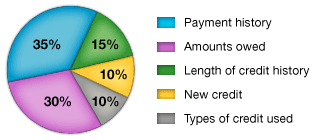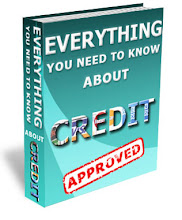Debt can be a very stressful and even suffocating circumstance. Many people have no idea how to even go about tackling their debt; and consequently, their debt continues to grow and compound until either John debtor does something about it or it crushes him. The best way to reduce your debt is through a debt snowball, and I am going to show you how.
Debt Snowball Explained
The reason for doing a debt snowball is that if you were to pay the minimum balance on all your debts you would end up paying an inordinate sum of money to each creditor; everyone knows this. Some people, however, try to pay $50 above the minimum payment on each debt. While this will get you out of debt faster than paying the minimum, this too is ineffective. The debt snowball method takes that extra $50 dollars for each debt, combines it, and throws it at one debt at a time. This way, you pay off that one account fast, and you can now add the minimum payment from that account to the snowball, making it larger and better able to pay off the next account. The idea is that with each account the amount grows larger like a snowball rolling down a hill.
Determine the Type of Snowball
There are two commonly-used methods for doing a debt snowball: smallest balance, highest interest. By choosing the smallest balance, you are choosing to take the weakest debt, in essence, and attack it. After paying off this debt you can then add the minimum payment from this debt to the snowball, making the snowball larger to attack the next smallest balance.
If you choose to pattern your snowball according to highest interest debts, then you are choosing to take out the most detrimental debt first (i.e. the one that creates the most compound interest against you). Both methods are effective, and whether one or the other is better depends on the individual. I recommend that you go to www.download.com and download a free program called “The Debt Reduction Calculator for Excel 1.0,” which will allow you to see both scenarios and determine which is best for you, and you can even print off a payment schedule.
Determine Snowball Amount
The next step will be to determine the snowball amount. This amount is the disposable income you have left over in your budget after you have accounted for all other payments. Many people will try to live frugally during the time of their debt snowball. This will definitely increase the speed by which you pay things off; but if you’re one of those people who cherishes a lavish lifestyle, you can still get out of debt without living on macaroni and cheese. Remember, your snowball will grow as you pay off each account. The key is to have your money accounted for on paper and stick to the snowball plan. If you’re unaccustomed to budgeting, this will be a good opportunity for you to learn a new skill
Pay off Debts One at a Time
The great thing about a debt snowball plan is that it gives you understanding, a light at the tunnel as it were, of how you can actually get out of debt. My wife and I have used this method successfully to pay off our two cars and our credit cards. The best part is that with each debt you pay off, it will get easier to tackle the remaining debts, and you will feel a comforting sense of possibility towards your remaining debt.













